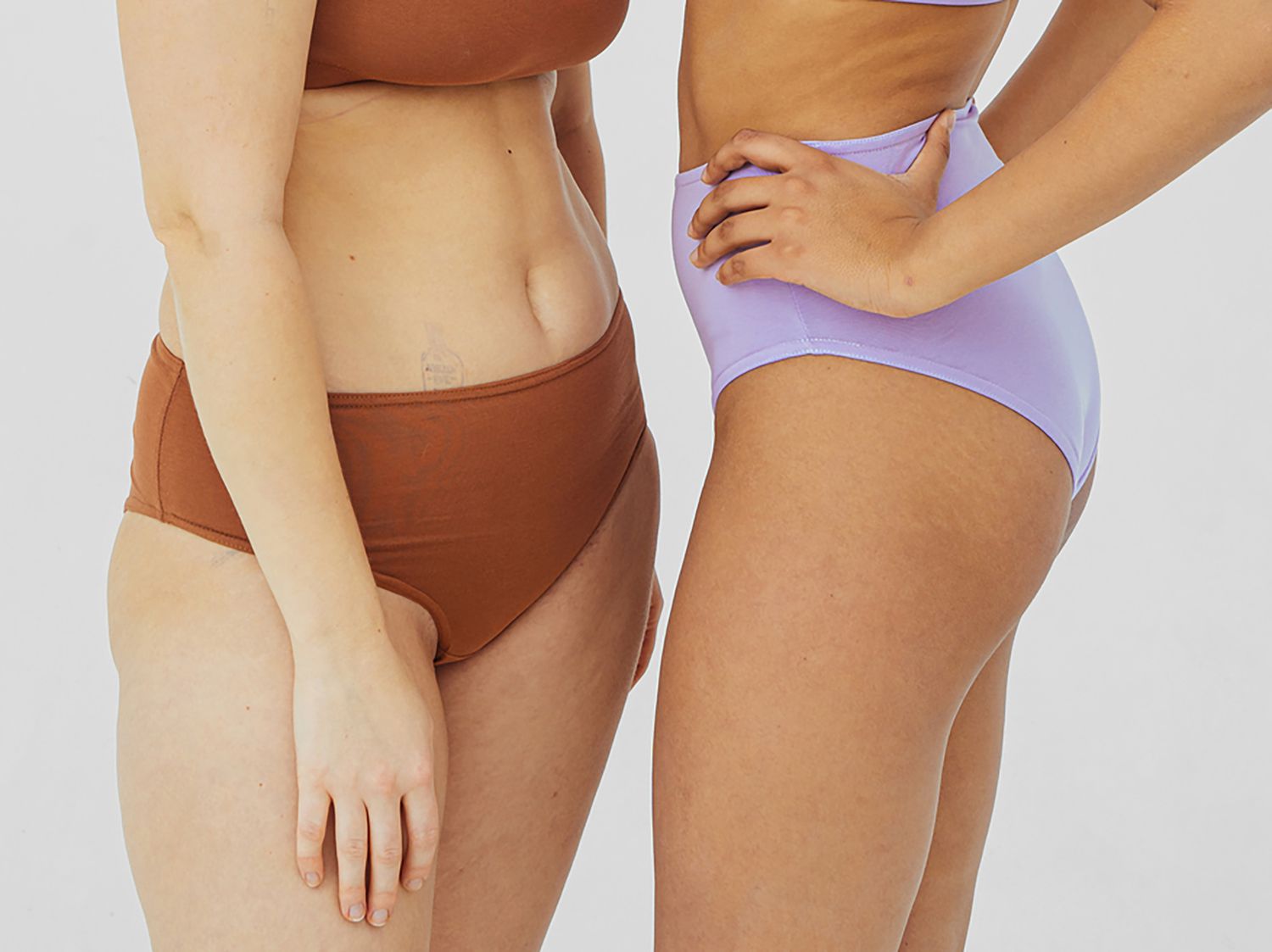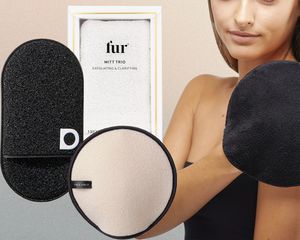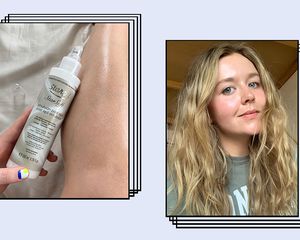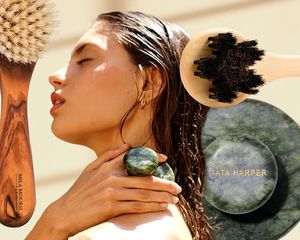
Ivan Ozerov / Stocksy
Waxing is one of the easiest ways to remove pubic hair: It's relatively quick, and the results can last up to a month. But there's one big con—the pain. But thankfully, there are plenty of ways to make bikini waxes less torturous. (It still won't be a pleasant experience; you are ripping out pubic hair, after all.)
We turned to three experts—board-certified dermatologist Stacy Chimento, MD, and waxing pros Elizabeth Satterly and Natalia Romanenko—and asked them for their tips and tricks to make the experience more pleasant and how to care for our bikini area post-wax to make sure the area stays soothed and sans irritation.
Meet the Expert
- Stacy Chimento, MD, is a Miami-based, board-certified dermatologist at Riverchase Dermatology.
- Elizabeth Satterly is a Field Trainer at European Wax Center.
- Natalia Romanenko is CEO at BriskNPosh, a laser and waxing hair removal service in NYC.
Keep reading for expert tips to make your next bikini wax appointment free of anxiety.
Avoid Alcohol and Caffeine
While a glass of wine might seem like a good idea for the nerves, Satterly says alcohol and caffeine are both stimulants that can cause your skin to be extra sensitive. Instead, she recommends drinking a large glass of water before your appointment. "Hydrated skin will always make for a less painful wax," she explains. "The skin is more moisturized and plump, which makes for easy hair removal."
Exfoliate with a Serum or Scrub
One to two days before your wax, gently exfoliate the skin on and around your bikini area. "Exfoliating helps wax grab the hairs and not your skin," explains Chimento.
Romanenko recommends using the Malin + Goetz Peppermint Body Scrub to exfoliate the waxed area once or twice a week between appointments for best results. If a physical exfoliator sounds too harsh for your skin, we suggest going the chemical route. You can't go wrong with the Eminence Organics Mangosteen Daily Resurfacing Concentrate.
Byrdie Tip
Do not exfoliate on the day of your appointment, as it can leave the skin more sensitive to pain. Also, if using a physical exfoliant, make sure not to scrub too hard, as that can irritate the skin.
Wait Long Enough Between Waxes
Let your hair grow back to a quarter of an inch (about the length of a grain of rice) before going in for your next appointment. According to Chimento, if your hair is too short, the wax may not be as effective since it cannot properly pull the hair from the follicle.
Use Hard Wax
Hard wax and strip waxes are less harsh on the skin. These methods are formulated to grip hair (not skin), so even your most sensitive areas will see fewer ingrown hairs. "It's created specifically for sensitive areas, as hair comes out easier, which reduces the pain and prolongs smooth, hairless results," says Romanenko. "Soft wax, with its stickier texture, is best used for less sensitive areas like legs."
Take a Pain Reliever
This tip may sound like a no-brainer, but it's important to mention. Satterly recommends taking an Ibuprofen or Advil about an hour before your wax as that "can help with swelling and inflammation after your wax."
Review Your Prescription Meds
Certain medications can make your skin more sensitive to waxing—but you should likely seek out alternative hair removal methods rather than stop taking your medication. Chimento cites isotretinoin and tretinoin as two acne medications that cause skin sensitivity.
Plan Around Your Period
Everyone has different thresholds of pain; however, your body is much more sensitive around your period. "When you are on your cycle—especially during your heavier days—you will be more sensitive than normal," explains Satterly. As such, it's best to schedule your wax for a different time of the month if possible. "A sweet spot is three to four days after your period," says Romanenko, since your pain tolerance is typically highest right after your menstrual cycle.
Wear Loose-Fitting Clothes
Make sure to create space for your bikini area to breathe post-wax. "Skip the leggings and jeans when going in for your wax, as friction will irritate," says Satterly. "Your skin maybe be sensitive after, so loose, breathable fabrics will avoid any extra irritation post-wax."
Work Quickly
Speed and efficiency are key when it comes to keeping pain at a minimum. Think about removing a band-aid—you want to do it as swiftly as possible. It's best to find a specialist who can focus on technique and tend to your particular needs, ensuring the process can be as quick and productive as possible. Holding skin taut when removing the wax strip is also a must for reducing discomfort.
Focus On Your Breathing
Bikini waxes and relaxation don't exactly go hand-in-hand, but try your best to relax your body while you're on the table. "Take deep breaths while you're being waxed," suggests Romanenko. "It will help clear your mind and reduce tension before the next strip."
Hold Off on the Workout
Chimento recommends waiting at least 24 hours post-wax before hitting the gym, as the skin will be a little inflamed and sensitive. Plus, "sweat from working out can transfer bacteria into lesions left behind from waxing," she adds. "If bacteria gets into these lesions, you are at risk for developing folliculitis and pimples."
Soothe and Moisturize the Area
Post-wax, the bikini area will require soothing ingredients that calm irritated skin and reduce discomfort. "You want something that will moisturize the skin and soothe irritation but will not clog the pores," says Satterly. She suggests EWC's Ingrown Hair Serum ($32) "as it soothes the skin and prevents ingrown hairs at the same time."
Avoid Heat
While standing in a steamy shower might just be the best feeling in the world, don't take hot showers or steam baths for 24 to 48 hours after a bikini wax. It'll dry out and irritate your skin, causing irritation, ingrown hairs, breakouts, and hives, notes Chimento. Waxing leaves the follicles vulnerable, so "if you bathe the same day as your wax, the product and bacteria in the water could cause an infection." She advises waiting at least four to seven hours for your skin to recover before taking a cool shower.
Byrdie Tip
Although it's best to wait 24 to 48 hours post-wax before taking a hot shower, if you do decide to shower before that time, use lukewarm water and skip a steam bath or sauna.
Turn to Professionals
Be very careful about cheap waxes and DIYs. Some certain techniques and products work and can be performed at home, but unless you're highly skilled at DIY bikini waxes, it's best to go to a professional. "Choose a place with a great reputation where you know the service providers are trained and are going to coach you through the process and make it as quick and painless as possible," encourages Satterly.




